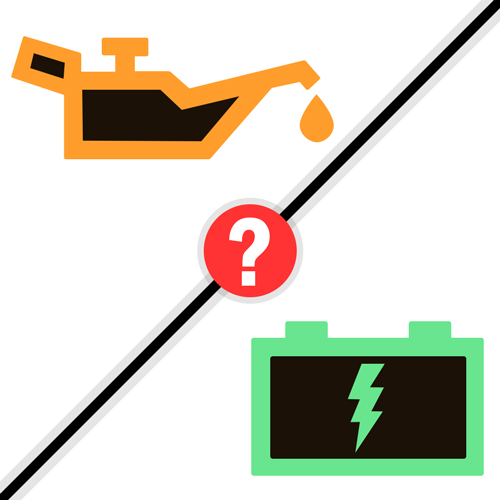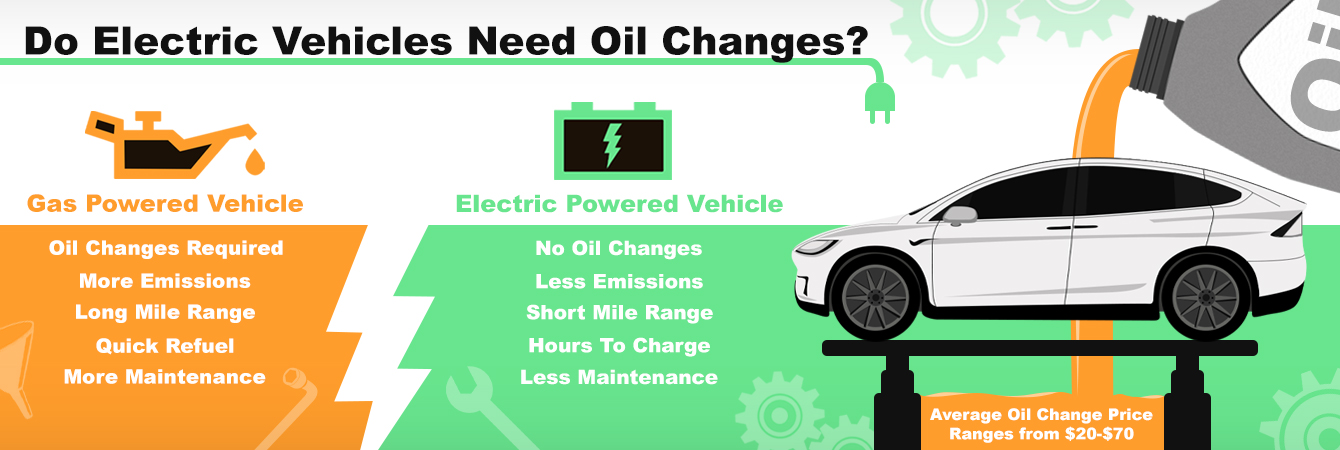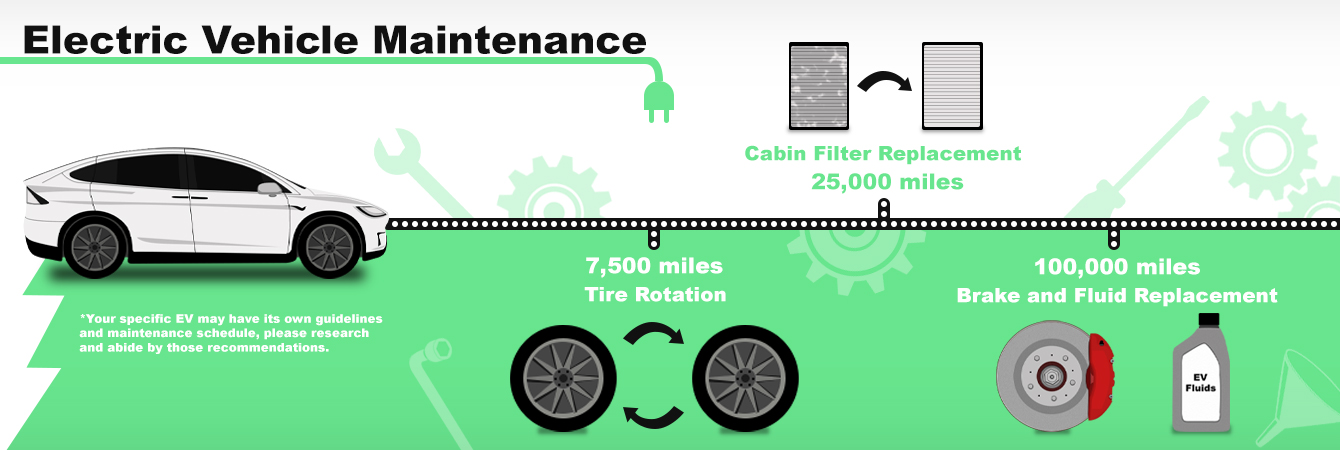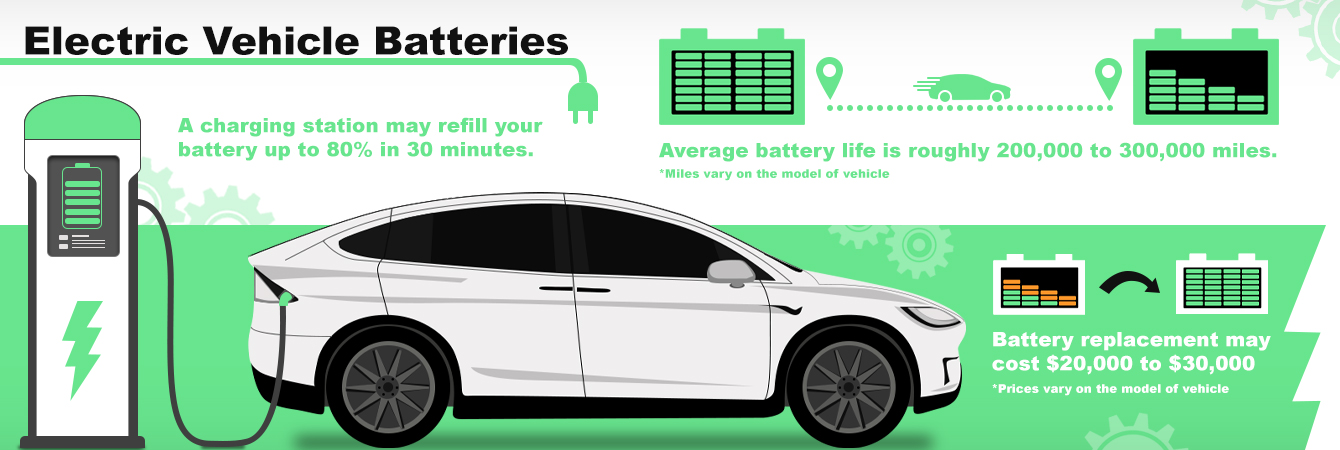Do Electric Vehicles Need Oil Changes? - A Guide to Electric Car Maintenance

Electric Vehicles, or EV for short, have been dramatically increasing in popularity over the last 20 years. However, technically, electric cars date back as far as the late 1800’s the recent EV boom is much more recent, starting around 2008. In 2008 Tesla entered the arena with the Tesla Roadster. Tesla was the first manufacturer to utilize lithium-ion batteries in a production vehicle and the first to possess a 200-mile driving range. These vehicles had a hefty price tag of $109k; however, this was the vehicle that started to change the public’s perception of EV for the better. The Nissan Leaf was one of the next big chapters in EV history. The Leaf came to the vehicle market in 2011. It was received well worldwide and had a 100-mile range. The Leaf became one of the bestselling electric vehicles ever having sold over 500,000 vehicles since its debut in 2011.
In 2022 electric vehicles are much more commonplace and only getting more popular as time goes on. With the cost of EVs dropping dramatically and the abilities and range of EVs greatly improving, it's very possible that your next vehicle will be an EV. With that being said, it is time to start learning what exactly a maintenance schedule for an electric vehicle looks like. As you know, electric vehicles do not use a combustion system as a means to create power for your drivetrain. This means that many of the normal maintenance routines you were used to for your old gasoline-powered vehicles simply do not exist in an EV.

Do electric vehicles need oil changes?
No, an electric vehicle will never need an oil change. Electric vehicles do not use combustion engines and therefore do not have any pistons or valves that require oil. That means that you will never have to get another oil change again. However, electric vehicles do have other fluids that require changing later on and less frequently.
Electric vehicles also do not have spark plugs, oxygen sensors, catalytic converters, air filters, or mufflers. You will never need to replace spark plugs or bad oxygen sensors. Catalytic converter theft is not an issue with an EV, they simply do not have one to steal. You will also never need to replace or clean your car's air filter again. Another benefit of having an EV is a severe reduction in brake bad or rotor replacement. Electric vehicles utilize regenerative braking. This regenerative method allows for the vehicles to be slowed down and uses that momentum to return some energy to the batteries. This means that the vehicle's friction braking system is used much less than in a normal gasoline vehicle. Using your brakes less means there will be less wear on your brake pads and less having to replace them, a win-win in my book.

How often do I have to take my electric vehicle in for maintenance/service?
In general, you will need to take your EV in for some basic services every 7,500 miles, for basic services like tire rotation, and every 25,000 miles for services like cabin air filter replacements. After 100,000 miles your electric vehicle will need to be taken in for things like fluid replacement and eventually brake replacements. Your specific EV may have its own guidelines and maintenance schedule, please research and abide by those recommendations.

What type of maintenance do electric vehicles need?
As you can see above electric vehicles actually take quite a bit less maintenance than your traditional gasoline-powered vehicle. However, that is not to say that EVs require no maintenance. Electric vehicles do generate a lot of heat and require coolant to regulate the entire system to prevent batteries from overheating. This means that coolant will need to be added and replaced as part of normal vehicle maintenance. Additionally, while the regenerative braking system saves your brake pads and saves on energy it uses braking fluid to run smoothly. This means that every 25,000 miles you should be replacing your brake fluid. Lastly, like all other vehicles, you will need to add fluid for your windshield wiper reservoir, at least until Elon Musk develops his new laser windshield wiper system (yes, that’s a real thing Tesla patented recently).
The last thing you will have to worry about with your electric vehicle is, of course, the battery itself. All batteries degrade over time and these EV batteries are no different. The battery capacity, much like your cellphone, will be reduced as it ages and is used. That being said, Tesla batteries are designed to last 300,000 to 500,000 miles, which is not bad at all. The downside is that the EV battery is the most costly portion of the entire EV. Tesla quotes battery pack replacements between $20,000 and $30,000 currently. That may be reduced in time but for now, it is still a tidy sum. There is also a somewhat small chance that your battery may just fail, or it can be damaged. Unfortunately, this will also require an expensive entire battery pack replacement. The real drawback here is EVs tend to depreciate quicker than gasoline-powered vehicles. So, your EV may require a $20,000-$30,000 battery repair but your vehicle's current resale value is only $25,000-$30,000. Can you really justify spending that amount of money for a repair or do you just scrape the entire vehicle instead?

